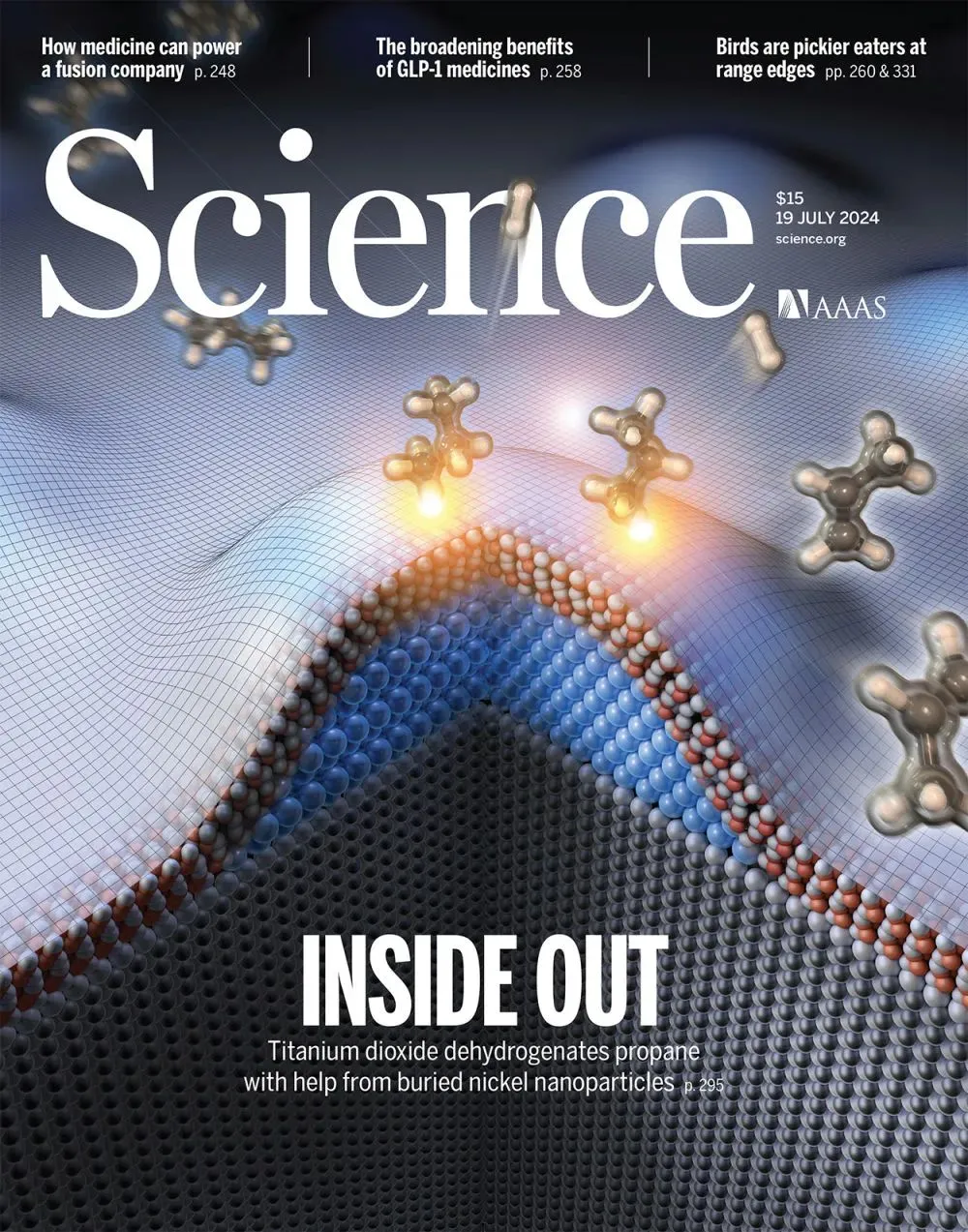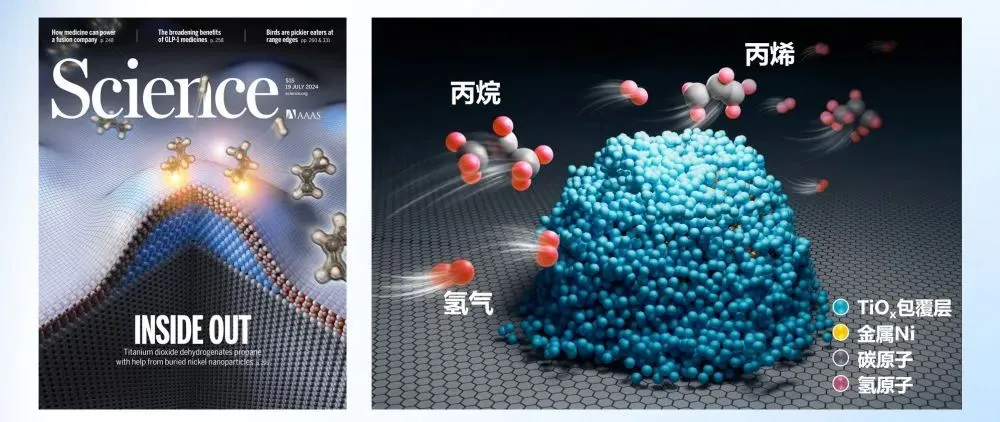Tianjin University develops a new cheap green propylene catalyst to help the sustainable development of the chemical industry
Chinese scientists successfully develop cheap green propylene production catalyst
The reporter learned from Tianjin University that
The new energy and chemical industry team of Tianjin University has successfully developed a new low-cost and environmentally friendly propylene catalyst, laying a scientific foundation for the next generation of olefin core technologies. The breakthrough research results were published in the form of a cover paper in the journal Science in the early morning of July 19.

July 19 cover of Science magazine. (Photo provided by Tianjin University)
Propylene is one of the largest chemicals in the world and an important basic chemical raw material in the fields of plastics, rubber, medicine, etc. The propylene industry has important strategic significance to the global petrochemical industry chain. In 2023, China's propylene production will account for about one-third of the world's total output, with a total output value exceeding 600 billion yuan.
Among many propylene production technologies, propane dehydrogenation process has become the mainstream due to its high economic benefits and low dependence on petroleum. However, traditional propane dehydrogenation catalysts have scarce and expensive raw materials and serious environmental pollution, causing the industry to face sustainable development problems. The next generation of propylene catalysts that are more efficient, cheaper and more environmentally friendly have become the scientific and technological commanding heights that the global chemical industry is competing to seize.
Under the leadership of Professor Gong Jinlong, the head of the new energy and chemical industry team of Tianjin University, in view of the fact that traditional propane dehydrogenation catalysts often use precious metals or highly toxic elements, boldly proposed the use of inexpensive and environmentally friendly oxides to generate electronic interactions with metals to promote scientific assumptions for the catalytic process. Based on this idea, the team spent five years developing a titania-nickel composite catalyst.

Propane dehydrogenation catalyzed by titanium oxide coating mediated by metal-oxide interactions. (Photo provided by Tianjin University)
Chen Sai, co-lead author of the paper and Ph.D. from the School of Chemical Engineering of Tianjin University, said that the world is rich in titanium and nickel resources, and China is a country with titanium resources. Experimental results show that the performance of this new catalyst is better than that of similar international products, can save costs by 30% to 50%, and at the same time achieve non-toxicity and low energy consumption in the catalyst preparation and use process. This lays a scientific foundation for the development of the next generation of efficient, cheap, environmentally friendly and sustainable propylene catalysts.
The Institute of Physics, Chinese Academy of Sciences, also participated in collaborative research.
